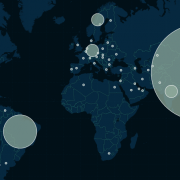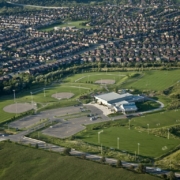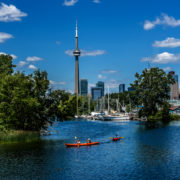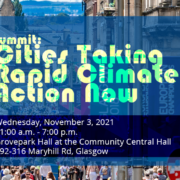Pathway to Paris #9: The gap in local and federal climate action commitments
In this Issue #9
- Canada fails to match GHG emission target
- Deconstructing Paris COP21 text
- Canadian premiers sign declaration for a low carbon economy
- John Kerry invites civil society to commit to climate action
- HSBC advises investors divest from fossil fuel companies
- Extreme weather events on the rise
______________________________________________________________
Canada fails to match GHG emission target
Every year, national climate scientists submit their greenhouse gas inventories to the UNFCCC. This year, Canada disappointed with 17% below 2005 levels by 2020, embarrassing when the US and EU are on track to meet and exceed their targets, even asking for a higher bracket. Despite efforts at provincial level to make up for the lack of leadership and encouragement at Federal level, the gap is leaving many climate activists in Canada wanting and despairing as we prepare for COP21 Paris this year. In this article, the different trends of Canada’s emissions are discussed.
Deconstructing Paris COP21 text
A welcome addition to the Paris build-up, this website by Nathan Morris and Simon Hillier deciphers and pulls apart the the COP 21 text. Starting with the preamble, the editors note how the text refers to earlier climate change agreements, but omits the reference to the precautionary principle, which is included in Article 3. Finance, Small Island States, Adaptation are other themes that are included and succinctly summarised by the editors.
Canadian Premiers sign low carbon economy declaration
Premiers from provinces across Canada met earlier this month at the Quebec Climate Summit and declared a commitment to transition to a low carbon economy. Commitments included a pan-Canada approach with sharing knowledge, practice and skills, increased investment in technologies, and resilient infrastructure. In light of the earlier story regarding Canada’s failure in reaching the international targets for emission reduction, there is a commitment to partnering with the Federal Government in light of the upcoming climate talks in Paris, to contribute more to these talks, and whilst in Paris promote the work provinces and local governments have been doing to achieve these international standards.
John Kerry asks civil society to participate and commit to climate action efforts
Whilst accepting the chairmanship for the Arctic Council on behalf of the US, Secretary of State John Kerry asked civil society to commit to reducing emissions, as well as their governments. He invited a “cities and local governments day” forum to be held in Paris during the climate talks in December. “A lot of mayors around the world are ahead of their national governments, and a lot of local citizens are well ahead of their elected leaders,” Kerry said. “I think we need to find a way to highlight that.”
HSBC joins the sway in encouraging investors to divest from fossil fuels, or face reputational risk
A recent report from HSBC states reasons for fossil fuel companies and their assets to be ‘unviable’ and ‘unburnable’. Increased legislation has forced a shift in economics combined with the improvement in technology around solar and storage solutions. This coupled with the drop in fossil fuel prices and the losses encountered by oil sectors, such as the Alberta tar sands, reduce their financial return and economic attraction. They recommend investors divest, or keep their investments whilst demanding companies shift their production and policies. Both have their drawbacks, but they suggest sticking with your investment could also be damaging to your reputation.
Extreme weather events increase as a result of climate change
Evidence from a study by Nature Climate Change proves that extreme weather events have increased as a result of manmade climate change. Figures for extreme heat events, when they were once every thousand days, are now occurring four or five times in the same time period. Similarly one in five extreme rainfall events is a result of the 0.85C temperature rise since the Industrial Revolution. These events also vary in frequency with distance from the equator; countries who’s infrastructure is already fragile are more susceptible to these extreme events.
Subscribe here to this weekly briefing
Supported by Vancity
============================================================
A briefing prepared by SSG’s Office of the Research










